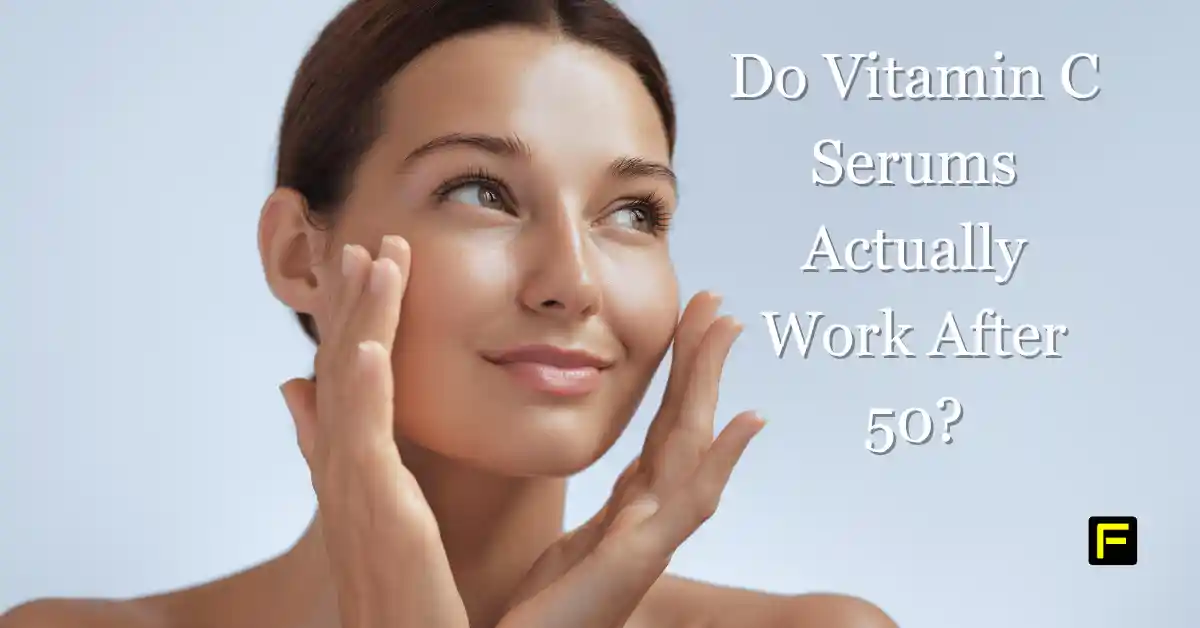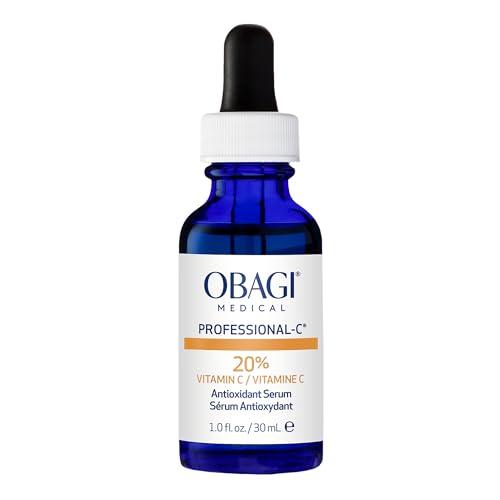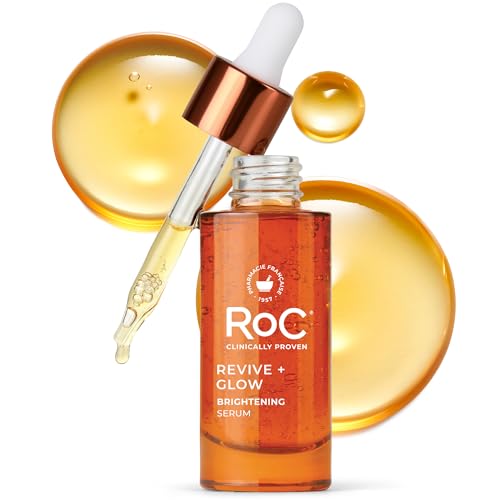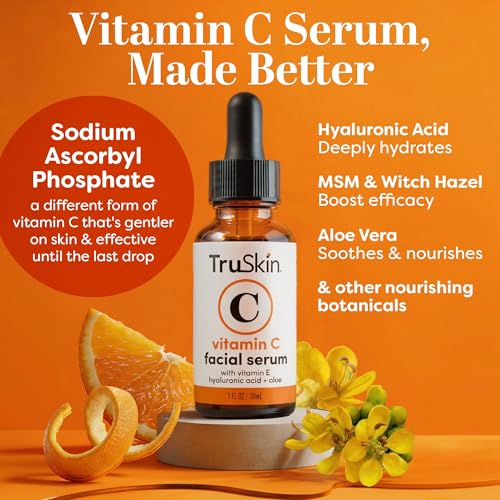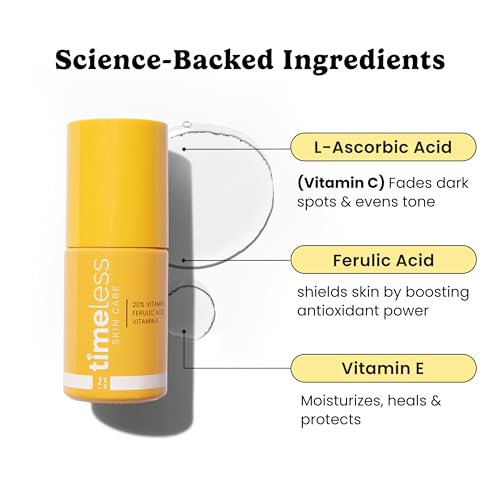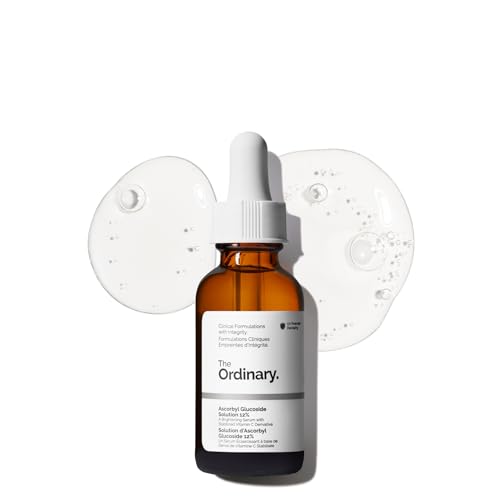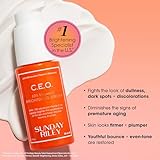I stood in the skincare aisle holding a $68 bottle of vitamin C serum, feeling completely lost. The label promised “clinical results” and “visible transformation,” but I’d heard that before. By the time I hit my fifties, I’d already wasted money on products that did nothing except make me feel foolish for believing the hype.
Here’s what I wish someone had told me: yes, vitamin C serums can work, but not in the way the glossy ads promise. And definitely not overnight.
Let me save you the year of confusion and wasted money it took me to figure this out.
Table of Contents
Do Vitamin C Serums Really Work After 50? – Let’s Get Started
First, The Important Stuff You Need to Know
⚠️ A quick note about my background: I’m a Certified Personal Trainer, not a dermatologist or esthetician. Everything I’m sharing here comes from my personal research and experience, plus conversations with my dermatologist and the 50+ women I train.
Always check with your doctor or dermatologist before starting any new skincare routine, especially if you have sensitive skin, rosacea, eczema, or take medications that affect your skin.
That said, I’ve learned a lot about what works (and what’s just expensive marketing), and I want to share it with you.
Why I Started Looking Into Vitamin C Serums
A client of mine, Nancy, mentioned she’d been using vitamin C serum for six months. I noticed her skin looked brighter, more even. When I asked about it, she laughed and said, “Claudia, I thought you knew about this stuff!”
I didn’t. I’d been so focused on fitness that I’d ignored my skin for years. But standing next to Nancy, I noticed my own age spots were getting darker. My skin looked dull. I felt invisible in ways that had nothing to do with my fitness level.
Sound familiar? You’re not alone in feeling this way.
So I did what I always do. I researched. I talked to my dermatologist. I tried products. I made mistakes. And after a year, I finally figured out what actually works versus what’s just clever marketing.
What Vitamin C Actually Does (The Honest Version)
Here’s what the research shows, in plain English:
It helps fade dark spots and sun damage
This was my biggest win. After three months, my age spots got lighter. Not gone, but definitely faded. Clinical studies show vitamin C can significantly reduce dark spots after 12 weeks of daily use. That matched my experience exactly.
It makes skin look brighter and more even
Within a few weeks, my skin had more radiance. Not glowing like a teenager, but healthier looking. My husband noticed before I did.
It supports collagen production
Our bodies produce 1% less collagen every year after age 30. Vitamin C helps your skin make more of it. You won’t see dramatic wrinkle reversal. But it does help maintain firmness over time.
It boosts your sunscreen’s effectiveness
Think of it as backup protection under your SPF. It neutralizes free radicals from sun exposure and pollution. This is why you use it in the morning, not at night.
Here’s what it WON’T do:
- It won’t replace Botox or fillers
- It won’t erase deep wrinkles
- It won’t work overnight
- It won’t give you the skin you had at 30
If that’s what you’re after, talk to your dermatologist about professional treatments. But if you want gradual, meaningful improvement in brightness, tone, and sun damage, vitamin C delivers.
The Mistakes I Made (So You Don’t Have To)
Mistake #1: I bought the cheapest option
That $12 serum from the drugstore seemed like a smart choice. It wasn’t. The packaging was clear (bad). The formula turned brown within two weeks. It did absolutely nothing. I wasted money trying to save money.
Mistake #2: I expected instant results
After two weeks, I was ready to give up. “This is stupid,” I thought. “Nothing’s changing.” But my dermatologist told me to give it 12 weeks minimum. She was right. Results came slowly, but they came.
Mistake #3: I skipped sunscreen
Vitamin C without sunscreen is like exercising without eating protein. You’re doing the work but missing the crucial support. SPF is non-negotiable. I learned this the hard way. My age spots got darker instead of lighter because I wasn’t protecting my skin.
Mistake #4: I stored it wrong
I kept my first bottle on the bathroom counter in direct sunlight. It oxidized fast. Now I keep mine in the fridge. It lasts longer and feels refreshing when I apply it.
Here’s what I realized looking back:
I was approaching skincare the same way I used to approach fitness. I expected instant results. I beat myself up when they didn’t come. But that’s not how either one works. Progress is slow. Progress is boring. But progress is real if you stick with it.
If you’re reading this feeling frustrated that nothing seems to work, I get it. I’ve been there. Give yourself permission to be patient with the process.
What to Actually Look For (The Simple Version)
After trying seven different serums, here’s what finally worked:
L-ascorbic acid at 10-20% concentration
This is the form with the most research behind it. Lower than 10% isn’t strong enough. Higher than 20% just irritates your skin without added benefit. I use 15% and it’s perfect for my skin.
Dark, airtight packaging
Clear bottles let light in. Light destroys vitamin C. Look for opaque glass with a pump or airless container. No jars you dip your fingers into.
A pH between 2.5 and 3.5
This is technical, but important. Vitamin C only works at low pH. Quality formulas will list this. If it’s not mentioned, pass.
Bonus: Vitamin E and ferulic acid
When combined with these two ingredients, vitamin C works eight times better. Not all serums have them, but the good ones do.
Price range: $25-60
You don’t need to spend $150. But you also can’t expect a $10 product to work well. The sweet spot is $25-60 for something properly formulated that will actually deliver results.
📦 Start Here: The Simplest Version
Feeling overwhelmed? Here’s where to begin:
- Buy one serum with 15% L-ascorbic acid in dark packaging
- Price range: $25-60 (don’t go cheaper, don’t need to go higher)
- Use it every morning before sunscreen
- Give it 12 weeks before you judge results
- Take photos in the same lighting to track progress
That’s it. Don’t overthink it.
The Realistic Timeline (What Actually Happened For Me)
Weeks 1-2: My skin felt slightly tingly when I applied it. That’s normal. I saw a tiny bit more brightness. Very subtle.
Weeks 4-6: My skin texture felt smoother. My husband asked if I was using a new moisturizer. The dullness was fading.
Weeks 8-12: This is when I really noticed the difference. My age spots were visibly lighter. My skin tone looked more even. The compliments started coming.
3+ months: Continued improvement. I take progress photos now in the same lighting. The difference is clear.
One of my clients, Linda, had even better results than me. Her sun damage was more severe. After four months, her transformation was remarkable. But she also combined vitamin C with regular dermatologist visits and professional treatments.
That’s the thing. Vitamin C isn’t magic. It’s one tool in your toolkit.
How Long Does It Take for Vitamin C to Work on Mature Skin?
This is the question I get asked most often. The honest answer? Longer than you want it to.
Most women over 50 start seeing results around week 8. But optimal results take 12 weeks minimum. Some women see dramatic changes. Others see subtle improvements. Your skin is unique.
The key is consistency. Daily application matters more than expensive brands.
How to Use It (The Simple Method)
Every morning:
- Cleanse your face with lukewarm water
- Wait until skin is completely dry (3-5 minutes)
- Apply 3-4 drops of vitamin C serum to face and neck
- Wait 1-2 minutes for it to absorb
- Apply moisturizer
- Apply SPF 30+ sunscreen (mandatory step)
What NOT to do:
- Don’t use it at night (it’s meant to protect during the day)
- Don’t use it with retinol in the same routine (use retinol at night)
- Don’t skip the waiting time before moisturizer
- Don’t use it on damp skin (water dilutes the formula)
Storage: Keep it in a cool, dark place. I store mine in the fridge. Replace it after 3 months. Even if there’s product left. Once it turns brown or orange, throw it out immediately. It’s oxidized and ineffective.
Who Should Try This (And Who Should Be Careful)
Vitamin C works well if you:
- Have sun damage, age spots, or uneven skin tone
- Want brighter, more radiant skin
- Are willing to commit to 12 weeks of daily use
- Already wear sunscreen daily (or are willing to start)
- Have realistic expectations about gradual improvement
Use caution if you have:
- Very sensitive skin or rosacea (talk to your dermatologist first)
- Active skin conditions like severe eczema or inflammatory acne
- Many other active products in your routine already
- A compromised skin barrier from over-exfoliation
Too many “actives” cause irritation. If you’re already using retinol, acids, and prescription treatments, adding vitamin C might overwhelm your skin. Talk to your dermatologist about the right order to introduce products.
This probably isn’t for you if:
- You want instant results
- You won’t use sunscreen daily
- You’re not willing to commit to 12 weeks minimum
- You’re looking for dramatic wrinkle reversal (talk to a dermatologist about professional options instead)
Finding the Best Vitamin C Serum for Age Spots Over 50
After trying multiple products, here’s what I learned about choosing the best vitamin C serum for age spots:
Look for L-ascorbic acid at 15-20% concentration. This percentage shows the best results for fading sun damage. Pair it with vitamin E and ferulic acid for maximum effectiveness on stubborn spots.
My age spots took 10 weeks to noticeably fade. Linda’s took 12 weeks. Nancy’s took 8 weeks. Everyone’s different. But all of us saw improvement with consistent use.
The key isn’t finding a miracle product. It’s finding a good-quality serum and using it every single day.
The Bottom Line: Is It Worth Your Money?
For me? Yes. Absolutely.
But only because I had realistic expectations. I bought a quality product. I used it consistently. And I paired it with daily sunscreen.
My age spots are lighter. My skin looks healthier and brighter. I feel more confident going out without makeup. I never thought I’d say that at 52.
But here’s what vitamin C didn’t do: it didn’t make me look 30 again. It didn’t erase my deep forehead lines. It didn’t replace my need for professional treatments when I decided to try those.
Think of vitamin C like strength training for your skin. You don’t see results after one workout. But after three months of consistency? The difference is real.
What I Tell My Clients
When women ask me about anti-aging skincare, here’s what I say:
You don’t need fixing. But if you want to fade sun damage, support healthier skin, and feel more confident in your own face, vitamin C is one of the few over-the-counter ingredients with real science backing it up.
Just don’t believe the miracle promises. Real results take time. They take consistency. They take quality products and daily sunscreen. There are no shortcuts in skincare, just like there are no shortcuts in fitness.
Start with one good serum. Use it every morning. Wear sunscreen. Give it 12 weeks before you judge. Take photos in the same lighting to track progress. Day-to-day changes are hard to see.
And remember: aging isn’t something to fight against. It’s something to move through with strength, confidence, and skin that feels healthy and cared for.
That’s what vitamin C gave me. Not youth. Not perfection. Just skin that looks and feels better than it did a year ago.
And honestly? That’s enough.
Your Next Step
If this resonated with you, I’d love to stay connected. Join my email list for one article every Thursday about feeling strong and confident after 50. No spam. No sales pitches. Just real talk from someone who gets it.
And if you have questions about starting a vitamin C routine, leave a comment below. I read every single one. I’ll share what I learned. Just remember to check with your dermatologist first.
You’ve got this. One small step at a time.
Related reading:
- Fall Skincare Routine for Women Over 50
- Should You Apply Sunscreen at Home?
- Best Anti-Aging Products for Women in Their 60s
- 10 Reasons to Start a Fitness Program Today

Claudia Faucher is a fitness and lifestyle blogger who shares practical tips for women over 50 on staying active, stylish, and confident. As the creator of FitFab50.com and Beyond59.com, she covers topics like workout gear, beauty trends, and wellness routines. Claudia is passionate about helping others live their best life at any age.
Last update on 2026-02-28 / Affiliate links / Images from Amazon Product Advertising API
